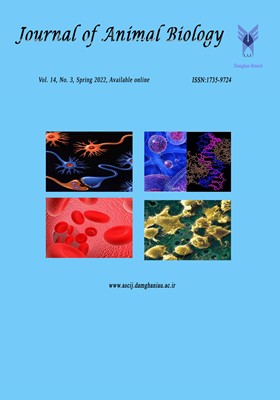The Effect of Melissa Officinalis and Melilotus Officinalis Extracts on Liver Function and Physiological Changes in Rats
Subject Areas : Journal of Animal Biology
Maryam Karimi Dehkordi
1
![]() ,
Farid Rezaei
2
,
Maryam Almasi
3
,
Farid Rezaei
2
,
Maryam Almasi
3
1 - Department of Clinical Sciences, Faculty of Veterinary Medicine, Islamic Azad University, Shahrekord Branch, Shahrekord, Iran
2 - Department of Pathobiology, Faculty of Veterinary Medicine, Razi University, Kermanshah, Iran
3 - MSc Graduate of Biology, Islamic Azad University, Hamedan branch, Hamedan, Iran
Keywords: Rat, AST, ALT, Melissa Officinalis, Melilotus Officinalis,
Abstract :
Medicinal plants used in traditional medicine of our country to treat various diseases are growing, but the effects of biological active compounds of these plants are still unknown on human health. Melissa officinalis and Melilotus officinalis are widely used in west of Iran as herbal medicine. This study was performed to evaluate the effects of ethanol extraction of Melissa officinalis and Melilotus officinalis on the liver enzymes (ALT and AST). Fifty Sprague- Dawley rats were assigned to five equal groups. The animals in groups 1 and 2 received Melissa officinalis extract (600 and 1200 mg/kg, respectively) and the rats of the third and fourth group received Melilotus officinalis extract (600 and 1200 mg/kg, respectively) for 30 days. The blood samples were collected into vacutainers without anticoagulant for biochemical analysis. The results of this study indicate that Melissa officinalis and Melilotus officinalis extracts were able to increase the AST levels in all animals compared to the control group. A significant increase in ALP activity was recorded in group 3 compared to the control (P= 0.027). The highest activity in serum ALT was observed in rats receiving the high dose of Melissa officinalis, but exhibited no statistically significant difference compared to the control group (P>0.05).
_||_


